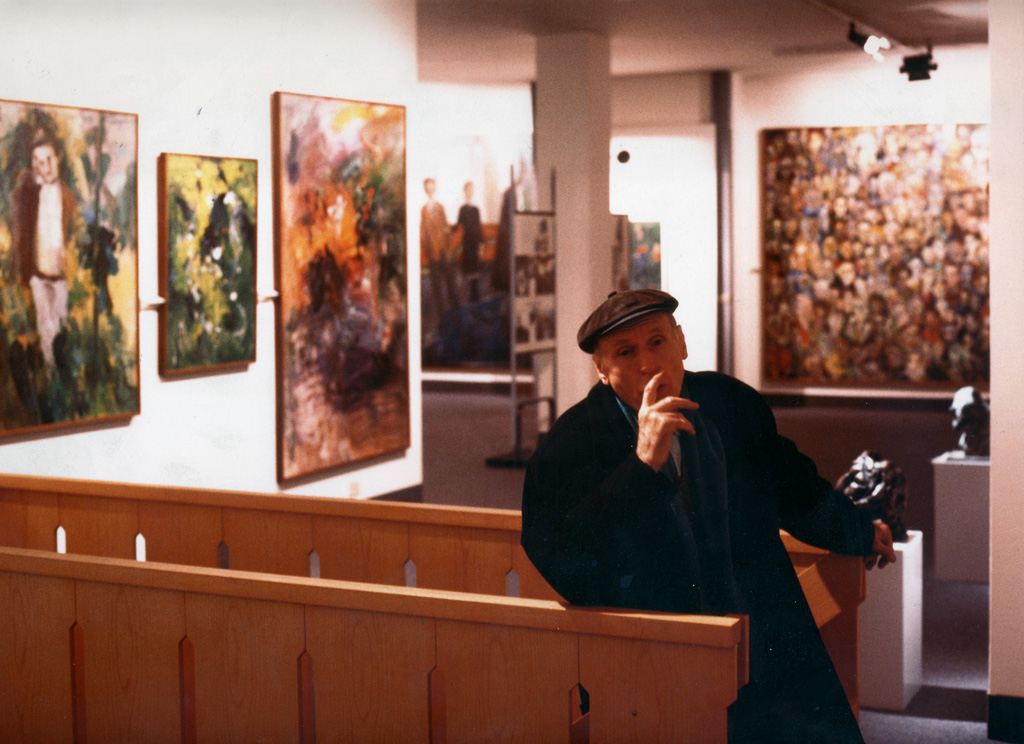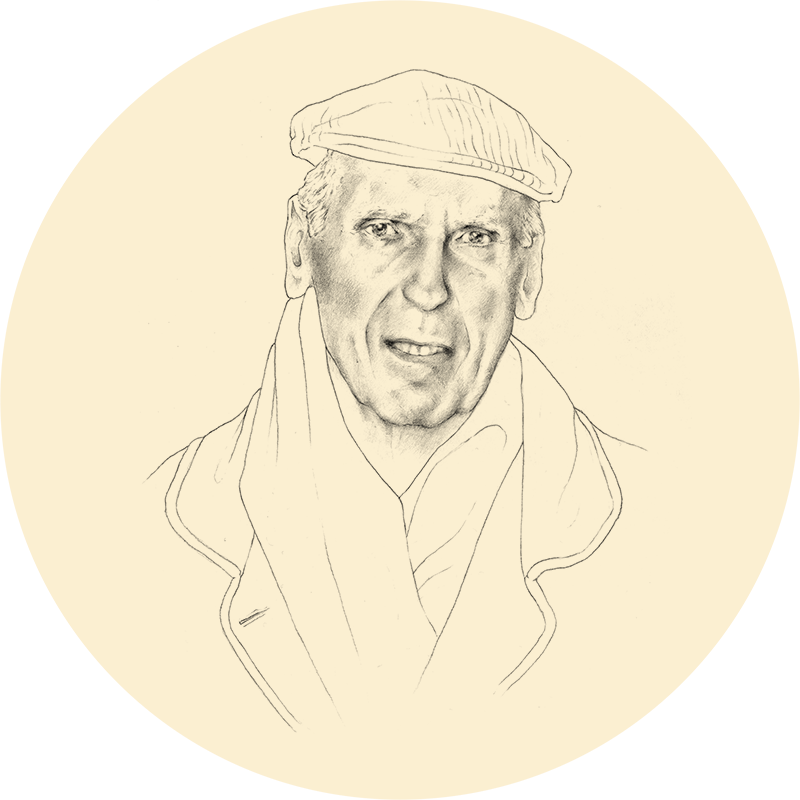There are still certain streets in Milan, like Via Carlo Porta, that seem to appear and disappear. They are there yet they are not there, you walk buy without even seeing them. A young woman looking for a job arrived here one morning in 1970. She came from Vanzaghello, between Busto Arsizio and the Ticino. Her name was Onorina, and she wasn’t sure how to address you, intimidated by your presence. You were looking for a secretary, Ernesto, someone to oversee your infinite everyday affairs. Onorina knew you well, was closely acquainted with your family, which “back in town” had given employment to entire generations of her neighbors. One phrase you uttered was enough to get over her shyness: “here, there are no counts, no countesses,” you said, smiling. It was her birthday. She worked with you to the very end. She knew your fixations, your rhythms, your schedule. The passion for order, precision, the everyday rituals. Your morning appointments, the painting, every day, right to the last day. Afternoon tea, or the cake you put out for her every day when she came to work. You were concerned when she was late, for which the northern rail lines were to blame, and you always wanted to make sure she set off on time for the commute home. You were like that, you cared about everyone, loved everyone, sharing their sorrows and passions.

It was almost as if you wanted to atone for belonging to such an important family. You mother Giulia, with whom you were very close, was a marquise from Genoa, while your father was a captain of industry who had made his fortune in textiles, and acquired the Cotonificio Valle Ticino, in Vanzaghello, as we were saying, where you grew up in the big Liberty villa, and you were referred to by the servants as “il contino,” listening to the sound of the sirens of the factories of your father, from beyond the walls of the town. You spent your whole life trying to knock down those walls. To eliminate barriers of class, of status, to share the love of life and art with all.
Maybe you were also trying to prove that you were better than such an extraordinary, cumbersome father. One who was capable of linking his surname, your surname, to the first encyclopedia ever made in Italy, the Treccani. A tycoon and a philanthropist, appointed Senator in 1924, and granted the title of Count in 1937. Judicious and moderate. Generous too. After you graduated from classical high school, not yet eighteen, he helped you to start a magazine. Too much, for anyone. The gossipmongers of the time said young men at that age wanted a motor scooter, not the helm of a magazine. Maybe they thought you were spoiled. But they were wrong. That “Corrente di vita giovanile” was indeed the dream of a young man, but it also brought some fresh air that was lacking on the suffocating scene of a regime that was increasingly closed, violent and racist.
That is the age for doing crazy things, Ernesto. Things that change your whole existence. You decide who you are, who you will be, for good. You had promised your parents to study engineering, but even your father had understood and accepted that you wanted to live through art, culture and painting. What worried him was your political passion, your increasingly evident, embarrassing, dangerous (for your safety) antifascism. Years later, Gianni Rodari remarked, to the woman who was to become your wife, that “when Corrente arrived, for us young people of the province it was a major event.” It took a youth to have such courage.
